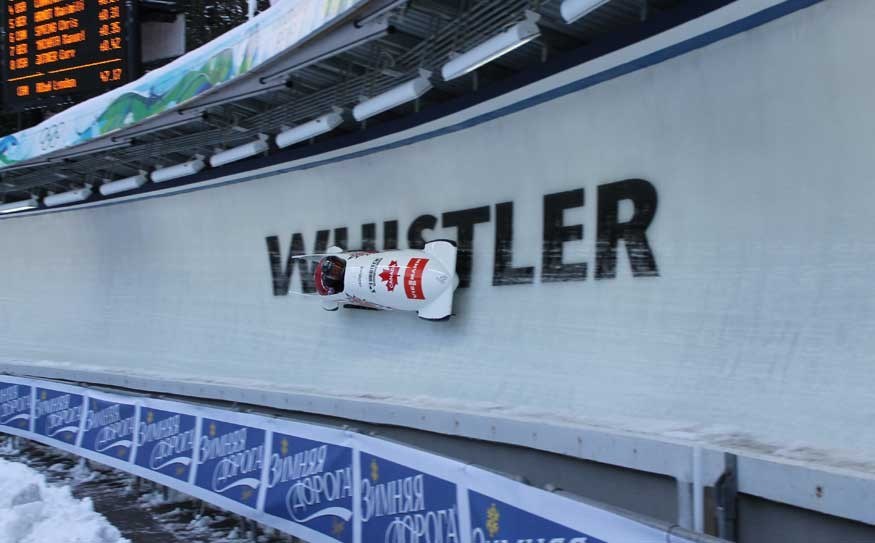The Games Operating Trust (GOT) had a pretty good year in 2012, with investments earning a return of roughly nine per cent to result in a fund balance of $108 million at the end of the year — about $3.4 million higher than reported at the end of 2011.
The fund started the year with a balance of $104.5 million. Some $5.6 million was paid out to Whistler Sport Legacies (WSL) and the City of Richmond to help manage the Olympic assets in their trust.
WSL received $2.81 million in 2012, including $2.17 million from the Games Operating Trust Fund and $643,473 from the contingency fund. The City of Richmond received $2.18 million from its fund, plus an identical $643,473 from the contingency.
For 2013, both WSL and Richmond have requested the maximum once again, which is five percent of the value of the fund over a three-year average. In June, Whistler received $2.81 million, which includes roughly the same amount from the contingency as 2012, while Richmond received $2.82 million.
The value of the Games Operating Trust fund and interest earned in 2013 won't be calculated until the end of the year.
The GOT was established in 2003 after Whistler and Vancouver were awarded the 2010 Olympic Winter Games, with the provincial and federal governments kicking in $55 million each to ensure that the most challenging Olympic legacies — namely the Whistler Sliding Centre, Whistler Olympic Park and Richmond Oval — were supported into the future.
By late 2007 the value of the fund had risen to $131 million, but the financial crisis of 2007-2008 wiped out those gains and temporarily dropped the funds' value to below $100 million. The value did rise again and was sitting at $114 million in 2010 before the assets were handed over to the WSL and Richmond. Both stakeholders needed extra funds at the time to cover the cost of the transition, as well as capital investments to make the venues more user-friendly to the public.
Roger Soane, the CEO of WSL, said that the GOT funds — plus additional funds from the provincial government — will always be necessary to underwrite the facilities, even though revenues are increasing.
WSL's numbers have not been audited for 2012 yet, but Soane said revenues from the Whistler Sliding Centre increased roughly 30 per cent, while revenues from Whistler Olympic Park increased by around 40 per cent.
At the same time, the WSL's overall budget will likely decrease from $7.5 million to below $7 million.
The budget, Soane says, will be influenced by the amount of capital investment required each year.
"I think we have close to $300 million in assets, and there's always going to be capital maintenance done on the venues and operating equipment," he said. "For example, we work on the track every year. It's a harsh environment with ice and concrete, and maintenance is going to be a regular thing."
Soane said public participation — including bobsleigh and skeleton tours at the sliding centre, and the sale of ski and snowshoe tickets at Whistler Olympic Park — are part of the reason for the increase in revenues, but much of it came from hosting special events and group business.
"There was an increase in skiers buying tickets," he said, "but it was more to do with the increase in other activities."
As well, Soane said they would continue to look at other potential revenue streams. For example, they're researching the viability of summer bobsleigh tours at the sliding centre, similar to what's offered at Canada Olympic Park in Calgary.
"We're hoping to have a summer bobsleigh program so the track can be open during the summer with a wheeled product," he said. "The challenge, as you can imagine, is that it's not like going down the street and buying a car, these wheeled bobsleds are not mass produced. If we decide to go ahead we have to work with the manufacturer, figure out how many bobsleighs we'll need and when we'll need them, and to have this for next summer we'll need to go into production in the next couple of months."
Currently, WSL receives additional funding from the provincial government, with $8.9 million in contributions so far, and $2.7 million guaranteed through 2015. If all goes well, Soane said WSL will be able to sustain itself from revenues and Games Operating Trust disbursements.
"Every year (the province) allocates a certain amount of funds, but we haven't gone back to the province since the last round of funding was approved and we don't anticipate going back to the province for any opera tional funding between now and 2016."
The other major asset of the WSL, which is not covered by the Games Operating Trust, is the Whistler Athletes' Centre in Cheakamus Crossing. Soane said that the athlete townhomes have at least an 80 per cent occupancy rate, while the number of visiting athletes using the 89-room Athletes' Lodge has increased year-over-year. The decision to build a kitchen in the building last year has helped with that, said Soane.
Those venues are more than covering costs, but Soane said it's unlikely that any profits from managing those assets will go to underwrite the Whistler Sliding Centre or Whistler Olympic Park operations because some capital investment and maintenance will be required in those venues as well.
The Whistler Sliding Centre, which was built for $109 million and has had millions of dollars in upgrades since, costs roughly $2.7 million to operate each year from October through April.




